This post is reblogged from "Ainsworths in Africa". It's a delightful story of two sisters . . .
High up Mount Manengouba in Cameroon, through rocky terrain and
lush foliage, lies the beautiful village of Bororos. The journey to
Bororos consists of a steep, uphill horse ride surrounded by craggy
rocks with only wildlife for company. But two little girls, sisters
Salamatou and Mariama, had never left their village high in the hills of
Cameroon because of their twisted legs.
The
six- and eight-year-old sisters didn’t get the important nutrients they
needed during crucial years of bone development. Without strong bones,
the pressure of walking caused their legs to grow incorrectly, resulting
in a condition called Valgus. Because of their malformed legs, they
both found it difficult to walk to school, and only sometimes managed to
attend. Their malnutrition, combined with an inability to access
surgery, meant Salamatou and Mariama had to learn to cope with their
twisted legs.
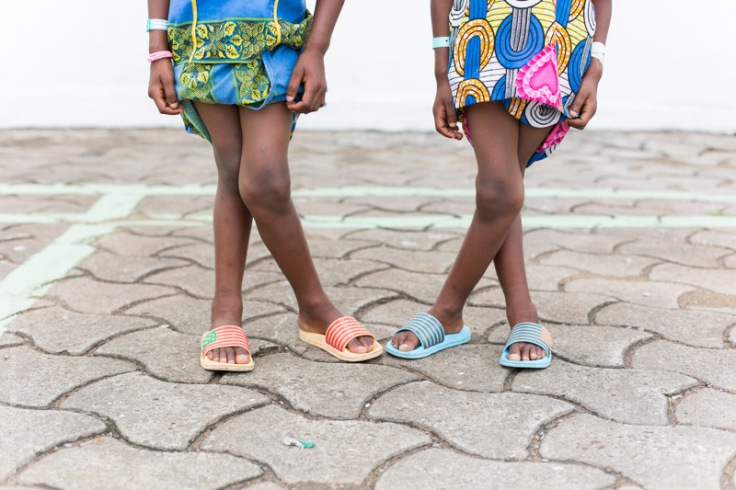
Their parents felt guilty when they first knew something was not
right. “I felt bad that we did not have any money to take them to the
hospital,” recalled their mother, Mymoona. “I was worried about them and
their future. If I didn’t do anything, I knew they would have a hard
time in life.”
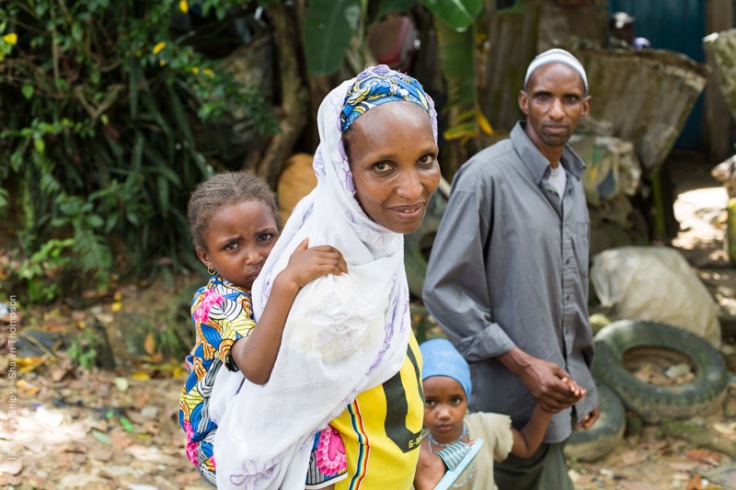
Mymoona was so worried about her daughters that it began to take a
toll on her health. So when her husband, Debo, heard about Mercy Ships,
he led all three of his girls down the mountain on horseback, making the
brave journey to the coast. They were grateful to have each other as
they arrived at a ship they had only heard stories about.
“We didn’t know the hospital was actually in the ship. We’ve never
been to a ship before,” said Debo. “When I first came I was afraid for
my girls, but then I saw many children like them and the fear went
away.”
The sisters’ almost identical conditions enabled the whole family to
stay together after they were approved for surgery. With their family by
their side, Salamatou and Mariama began to soak in their new
surroundings and prepare for the operations that would change the course
of their lives.
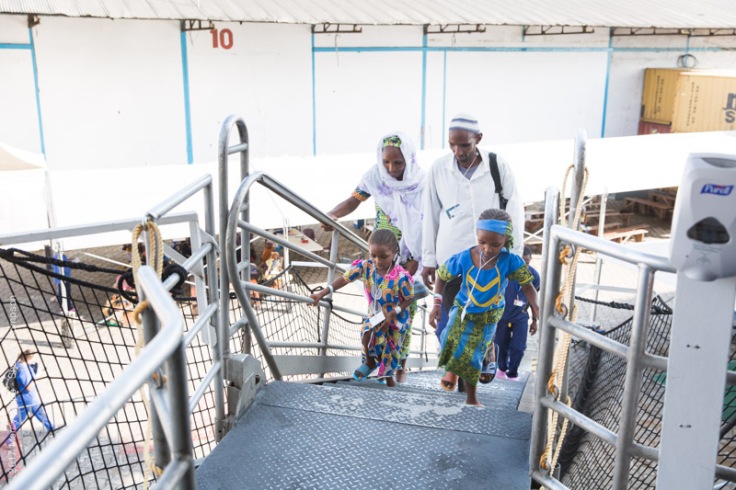
The first day after their surgeries, Salamatou was up and walking
around, challenging her sister, who was convinced the straightened casts
didn’t contain her own legs. Clutching at the familiarity of her toes,
Mariama watched her older sister stand tall. Soon, their strong
personalities were evident as they each watched competitively to see
what the other was achieving.
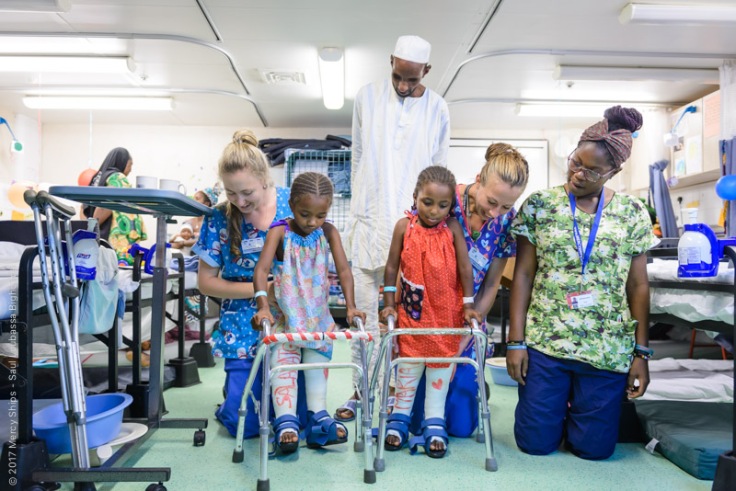
Their sibling rivalry throughout recovery encouraged growth as they
competed with one another to reach each healing milestone. Who would
stand up first? Who could walk the furthest? “They were encouraging each
other during their time on the ship,” recalls Debo. “One day, Salamatou
said to her younger sister, ‘Because you never smile, I will walk
before you…’ And she did! This motivated Mariama in her healing.”
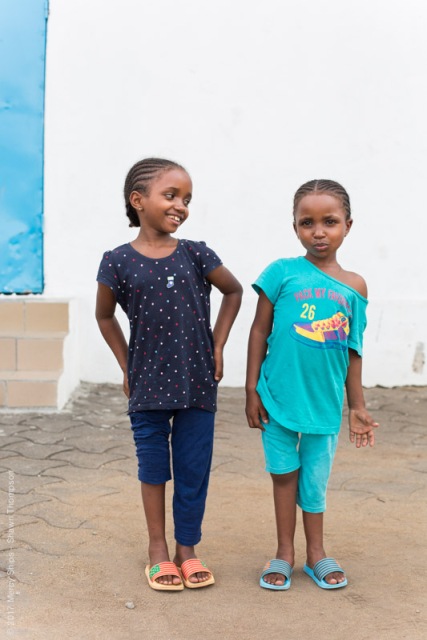
During their rehabilitation exercises, their parents learned about
the importance of nutrition. The ship’s dietician gave them valuable
information about crucial nutrients, like calcium, before sending the
family on their way with plenty of vitamins to aid the girls’ healing.
“They told us about the importance of eggs, fish, and vegetables,”
said Mymoona. “We will be sure to tell the other families in the village
so it can help us all.”
Volunteer Physiotherapist Meg Crameri worked with the girls during
their rehab sessions. She hopes this nutritional advice will be shared
to help other families whose children might otherwise end up suffering
with similar conditions.
“If you are from a poorer area where nutrition isn’t a top priority,
then it’s not surprising that this occurs,” said Crameri. “One of the
big ways we can change that is by making sure they do it right when they
go back home.”
Salamatou and Mariama returned to Bororos with newly straightened
legs! And Debo and Mymoona returned ready to share what they had learned
about nutrition during their time on the Africa Mercy.
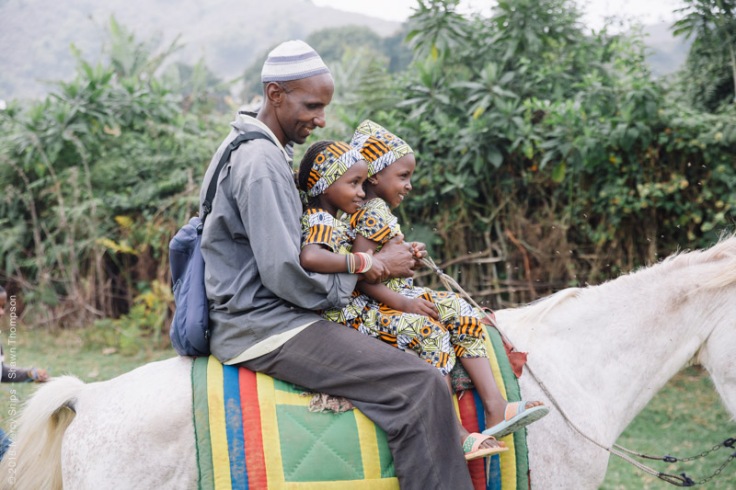
“The route down the mountain was too much for the girls before, and I
thought they would never go down. Their lives are far better now, far
improved,” said Debo. “Now, they will be able to commit to school and
use their education. Before, my heart was anxious for my family, but now
I am content.”
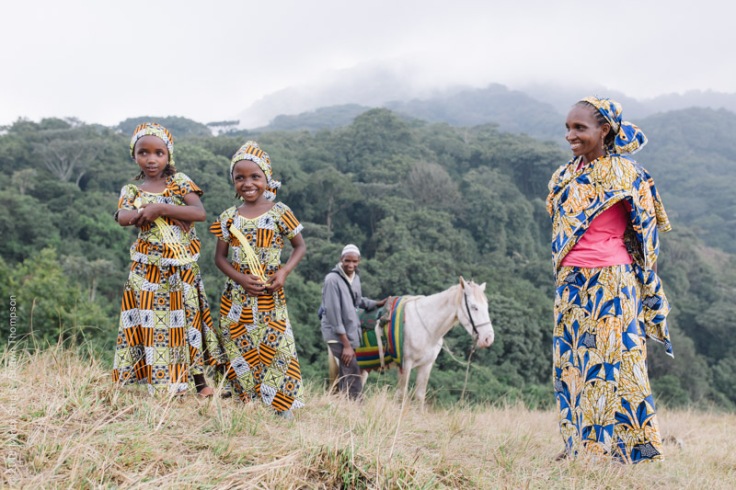
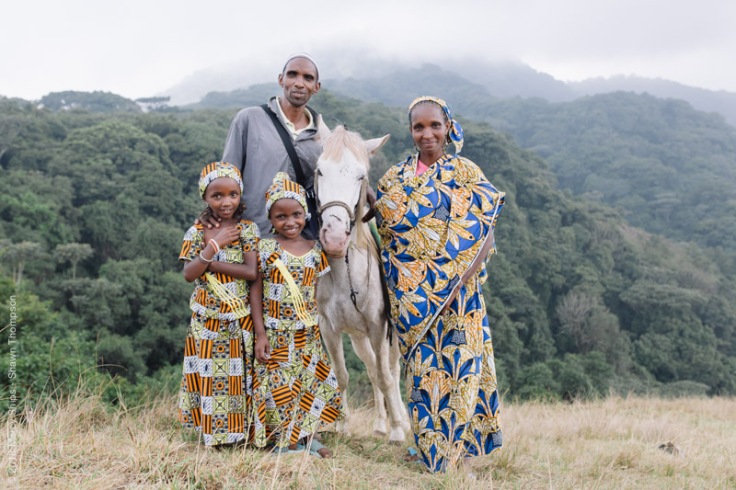

No comments:
Post a Comment